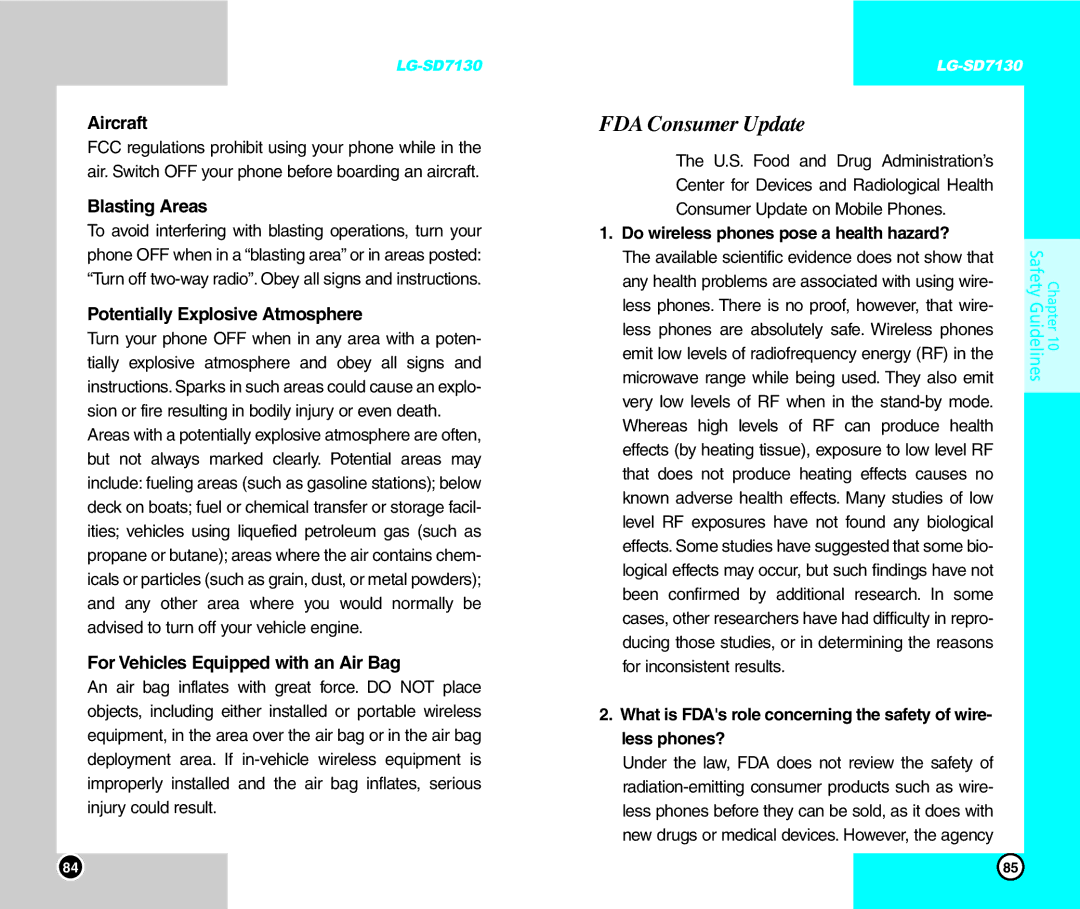
Aircraft
FCC regulations prohibit using your phone while in the air. Switch OFF your phone before boarding an aircraft.
Blasting Areas
To avoid interfering with blasting operations, turn your phone OFF when in a “blasting area” or in areas posted: “Turn off
Potentially Explosive Atmosphere
Turn your phone OFF when in any area with a poten- tially explosive atmosphere and obey all signs and instructions. Sparks in such areas could cause an explo- sion or fire resulting in bodily injury or even death.
Areas with a potentially explosive atmosphere are often, but not always marked clearly. Potential areas may include: fueling areas (such as gasoline stations); below deck on boats; fuel or chemical transfer or storage facil- ities; vehicles using liquefied petroleum gas (such as propane or butane); areas where the air contains chem- icals or particles (such as grain, dust, or metal powders); and any other area where you would normally be advised to turn off your vehicle engine.
For Vehicles Equipped with an Air Bag
An air bag inflates with great force. DO NOT place objects, including either installed or portable wireless equipment, in the area over the air bag or in the air bag deployment area. If
FDA Consumer Update
The U.S. Food and Drug Administration’s Center for Devices and Radiological Health Consumer Update on Mobile Phones.
1.Do wireless phones pose a health hazard?
The available scientific evidence does not show that any health problems are associated with using wire- less phones. There is no proof, however, that wire- less phones are absolutely safe. Wireless phones emit low levels of radiofrequency energy (RF) in the microwave range while being used. They also emit very low levels of RF when in the
2.What is FDA's role concerning the safety of wire- less phones?
Under the law, FDA does not review the safety of
Chapter 10
Safety Guidelines
84 | 85 |
